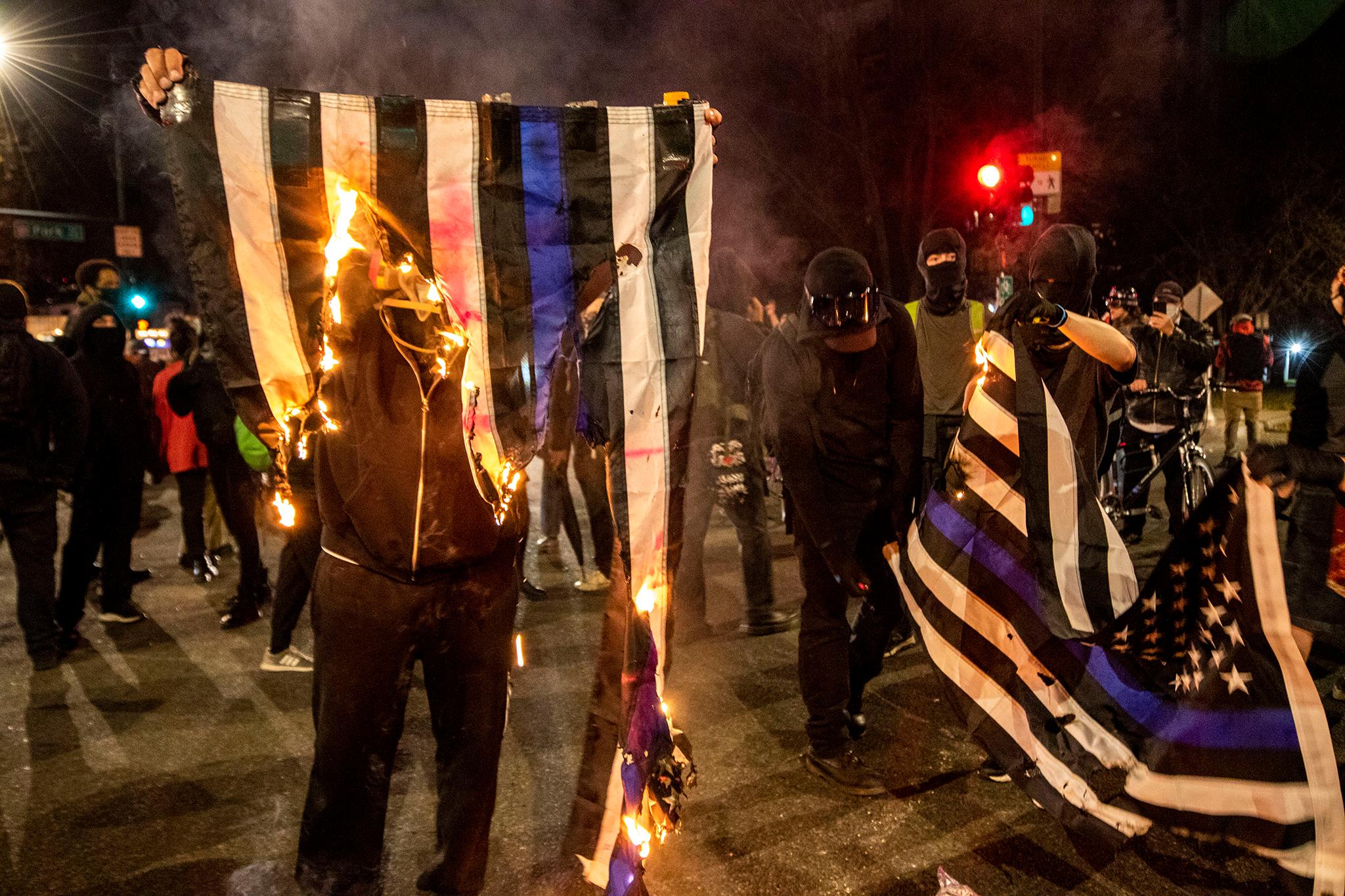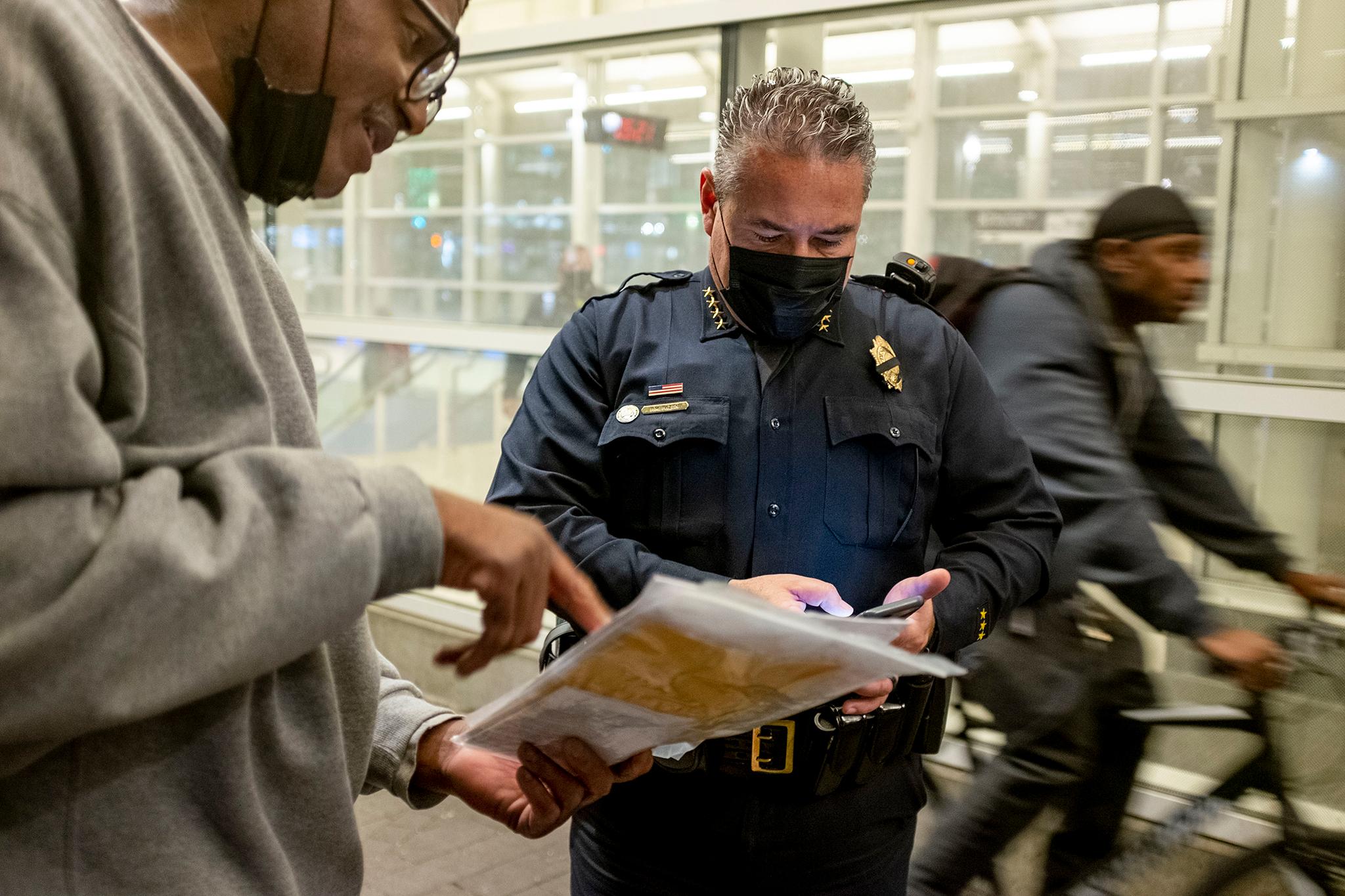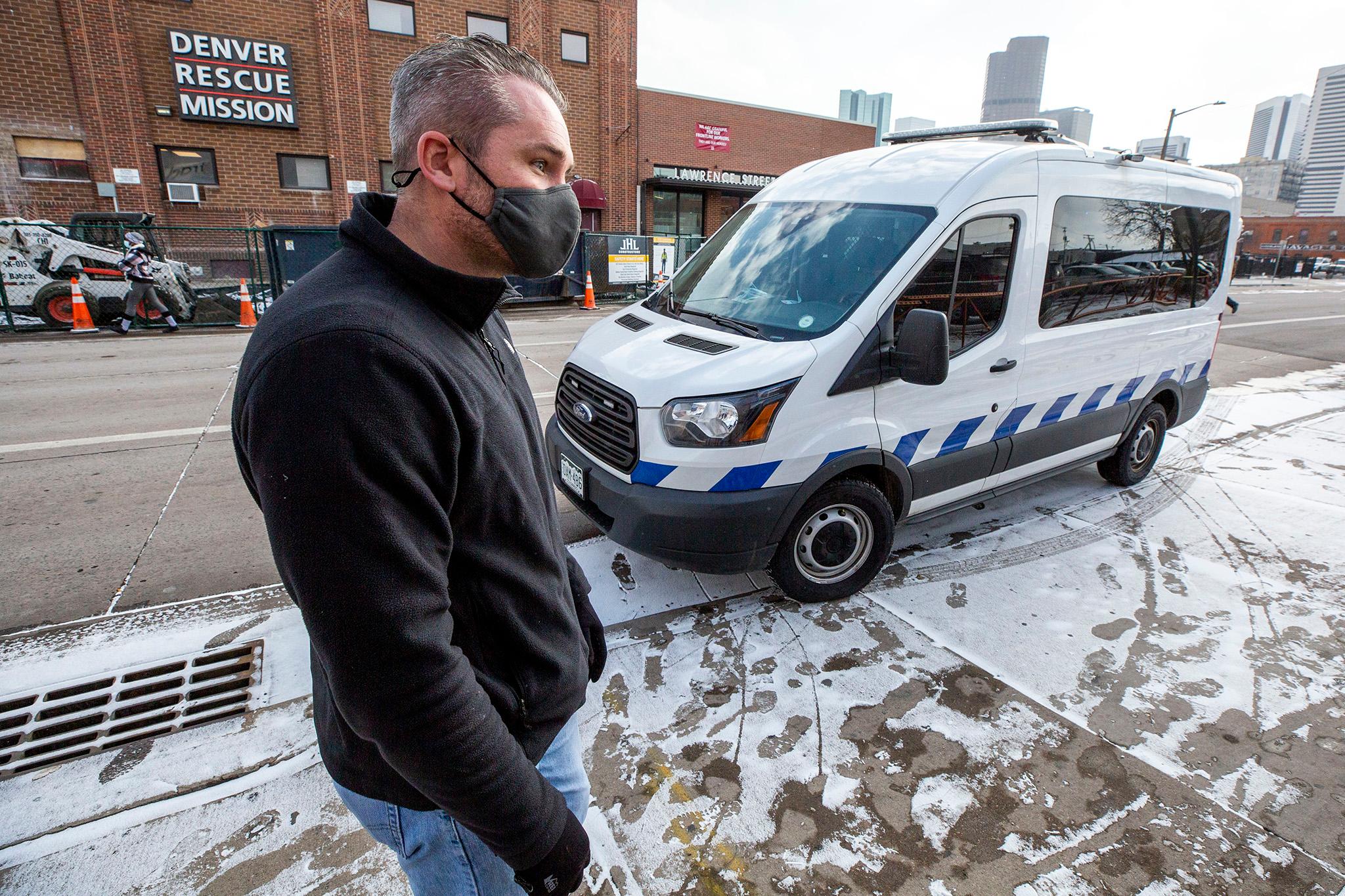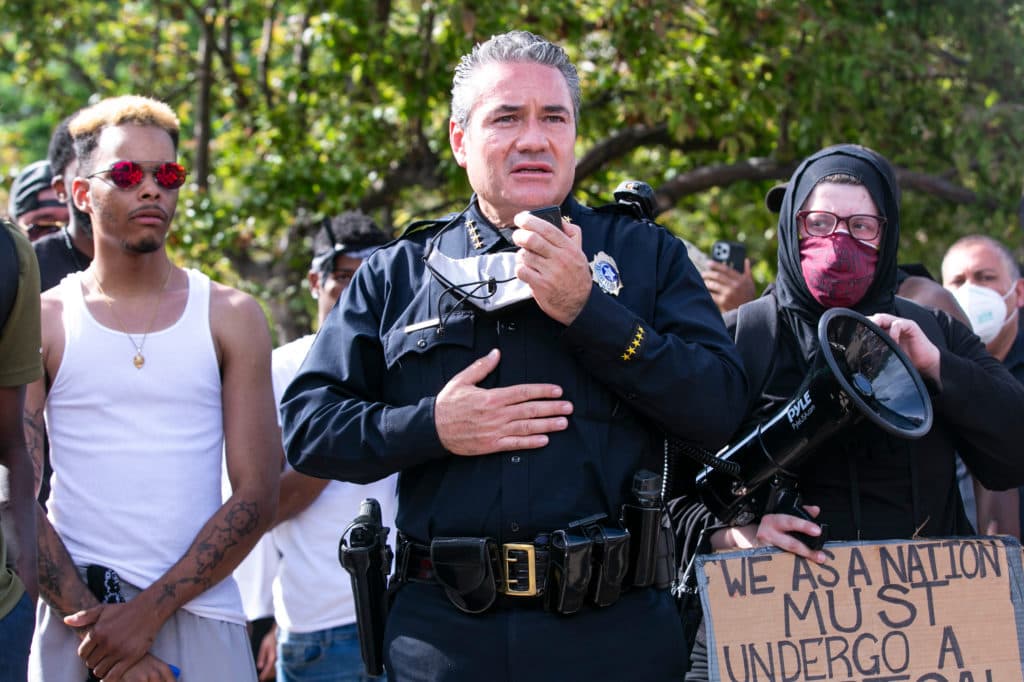More than two years later, Denver Police Chief Paul Pazen thinks about five spring days in 2020 every single day.
Protests against police brutality were roaring across Denver each night, and hundreds of people were clashing with police after George Floyd's murder in Minnesota. More than 350 people were arrested over five violent overnight demonstrations downtown.
"I think about that period every day. I certainly do," Pazen said, in a final interview he granted to CPR News ahead of his departure from the Denver Police Department. Pazen, 52, announced in August that he was leaving the top job after almost 30 years in the agency. "There are areas for improvement and we've dedicated the training side of things to ensure that it won't be replicated in the future. It was something we'd never seen before."
Officers deployed tear gas and shot bean bag guns during the 2020 protests. During a civil trial, the department admitted they made mistakes. More than 80 officers were injured as protesters threw canned food, water bottles and rocks.

One man, Phillip Lopez, was hit in the leg with a projectile from a 40 mm launcher, cutting his knee. Another man, Joe Deras, was hit by a flashbang grenade thrown into a crowd, which hurt his eardrum. Yet another protester, Zach Packard, was hit in the head by shrapnel from a shotgun blast and suffered a severe head injury.
A jury found the state's largest law enforcement agency used excessive force against protesters who came out between May 28 and June 1, 2020, and violated their constitutional rights. The jury ordered the city to pay out $14 million to a dozen plaintiffs. More lawsuits are pending.
Pazen -- the data-driven chief
Denver Mayor Michael Hancock appointed Pazen to chief in June 2018. Before that, Pazen served as a patrol officer, an investigator, a lieutenant and a commander, all at the DPD. He also was a member of the Special Weapons and Tactics Team, or SWAT.
Hancock's mayoral term ends next year, and a new mayor will likely want to appoint a new police chief.
Pazen declined to say whether he was interested in running for mayor himself.
"Thank you for the question," he said. "I want to have the biggest impact moving forward to help our community, and I'm evaluating what those possibilities are. I do recognize that crime is a big part of our economic vibrancy and it impacts education and affordable housing and the safety of the people who are homeowners and renters in our community. Whether I'm heavily involved, as the face of something, or behind the scenes, I'm trying to see what the path forward is."

During his tenure as chief, Pazen has put emphasis on community policing and solving violent crimes. DPD has continually solved more violent crimes than other large agencies and has a higher "clearance" rate, or the number of solved crimes, than the statewide average both for all violent crimes and homicides.Pazen has also tried to work on officer wellness and has implemented "re-integration" programs when officers deal with a traumatic incident on the job, including officer shootings, to take a wellness break and then come back to the force slowly.
Pazen, who was known for carting around crime data to meetings, said he leaves the department proud of some of the new data-driven strategies he employed while being chief to target areas of the city weathering high rates of violent crime.
This included a hot-spot saturation program that increased law enforcement presence in five areas of the city as well as wrap-around services to help people with housing or addiction counseling.
"The outreach case coordinators, the continuum of care, the social correlates, those programs I'm very proud of," he said. "I would count those as some of the highs of my 28 years in the Denver Police Department."
Pazen also said he was proud of Denver being among the national leaders with the STAR program, which was launched within a month of the Floyd protests.
A Stanford University study found the STAR program, or Support Team Assisted Response, has reduced crime in the city. And officials running the program say they've never once called for police backup when responding to a call.

"I'm proud of how we led to get this initiative up and running," Pazen said. "It moved the needle for law enforcement, not just here in Denver, not just here in Colorado, but nationally."
Pazen also helmed the agency during large increases in homicides and officer shootings. Between 2018 and 2021, violent crime jumped in Denver from 5,826 crimes in 2018 to 7,393 crimes in 2021. There were 65 murders in Denver in 2018 and 100 in 2021, according to the Colorado Bureau of Investigation.
All the while, DPD's ranks shrank as law enforcement agencies across the state struggled with massive departures. One prominent sergeant also filed a whistleblower complaint against the agency for harassment and discrimination.
"Please tell me how a virus makes people commit more crimes, makes people steal more cars and increases the number of shootings we have?" he said, in a February interview.
But several months later, as he leaves the agency, Pazen strikes a more conciliatory tone.
"Instead of the word blame, maybe we talk about the word attribute. I think there have been some corrections in the criminal justice system and, I think it's pushed us out of balance," he said. "Really, it's about awareness, trying to say, we've been in a remarkably safe state for so long ... And I'm not saying there is one single source. There are different aspects of the criminal justice system and now we need to rebalance the approach."
When asked what he thought was his biggest mistake in four years leading the agency, Pazen said he wished he would have worked harder to build relationships up within the community before the Floyd protests exploded in 2020.
Pazen marched in the protests himself, but he said he could have worked to have deeper connections with advocates ahead of time and perhaps that could have helped assuage some of the anger against police that summer.
"I think we could have had positive changes throughout the community without the level of damage and destruction and injuries that took place," he said. "What steps could I have, as an individual, done to prevent all that from happening? And I think staying engaged, staying together and demonstrating the desire to connect, the desire to listen, we could have done that earlier or on a more regular basis."













